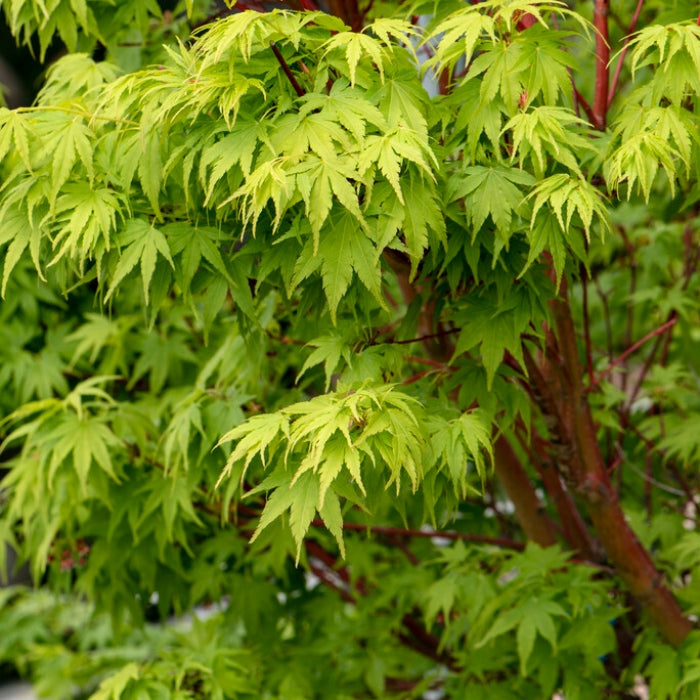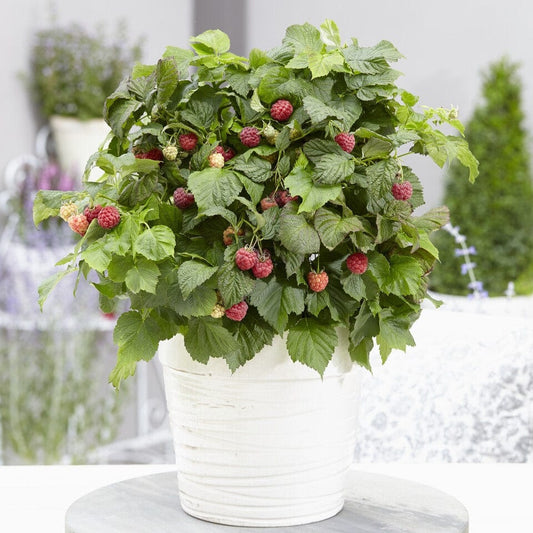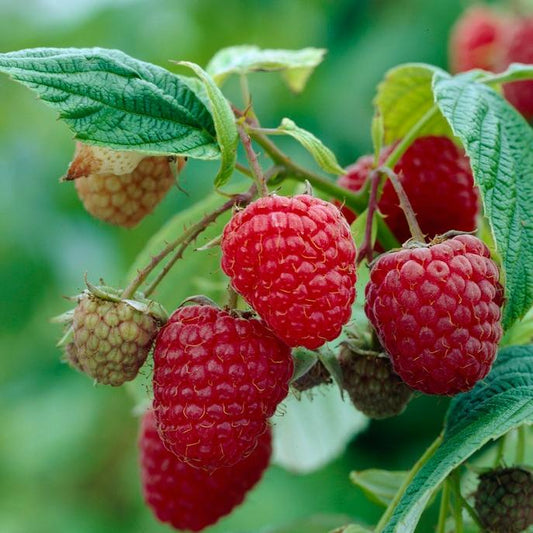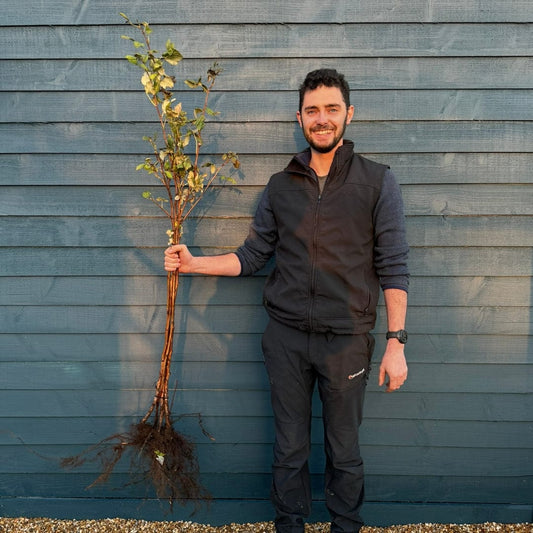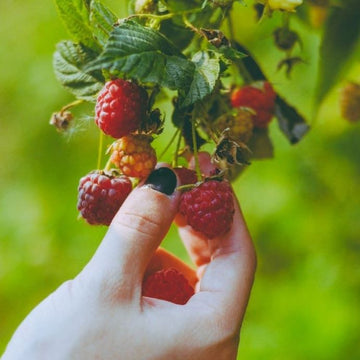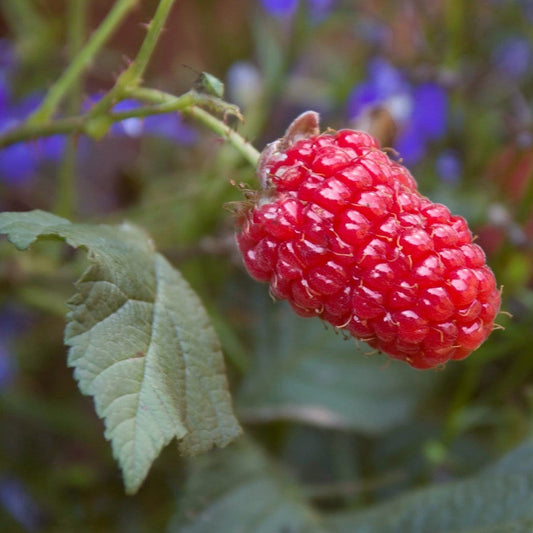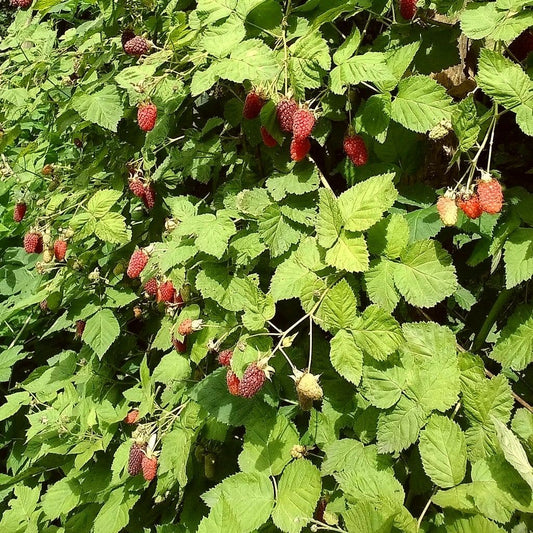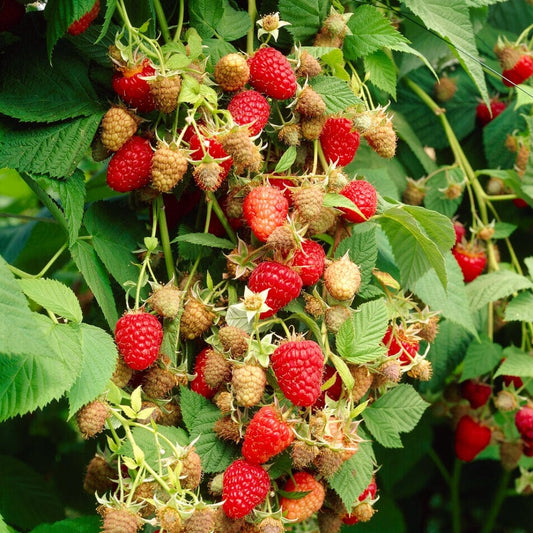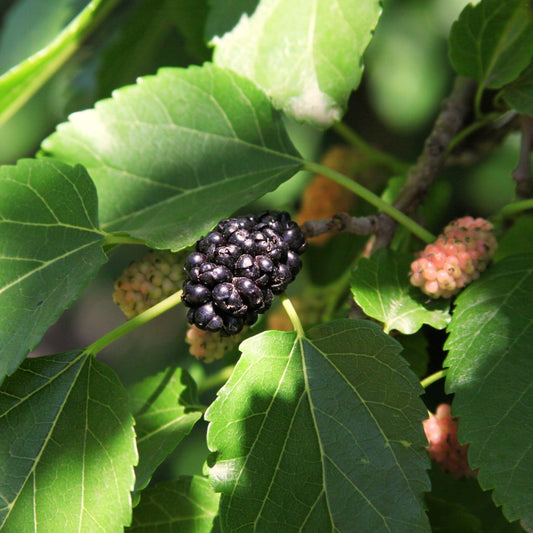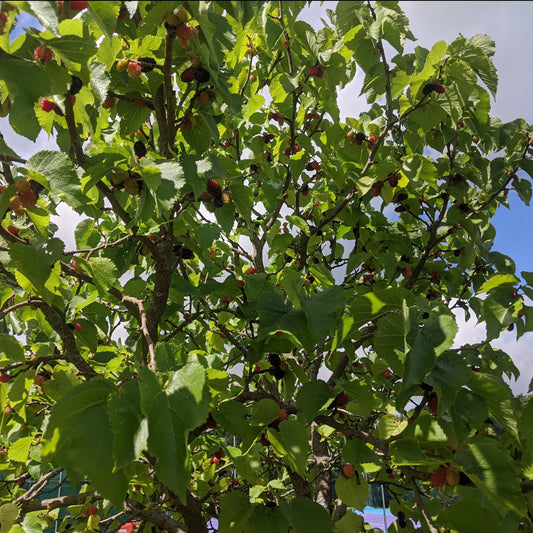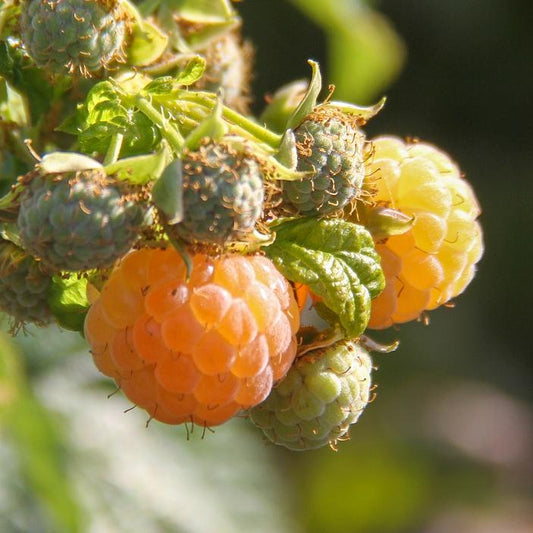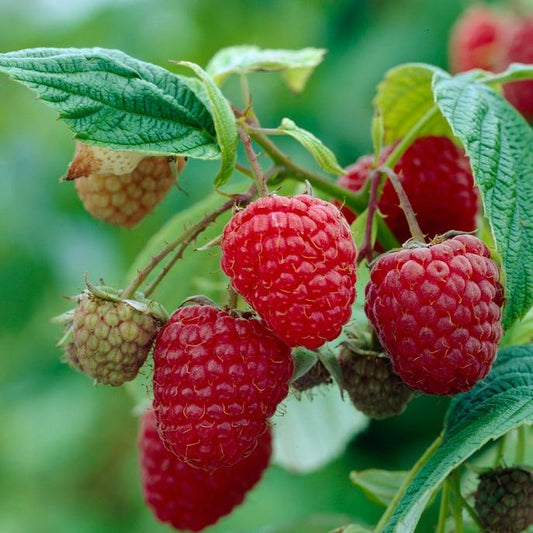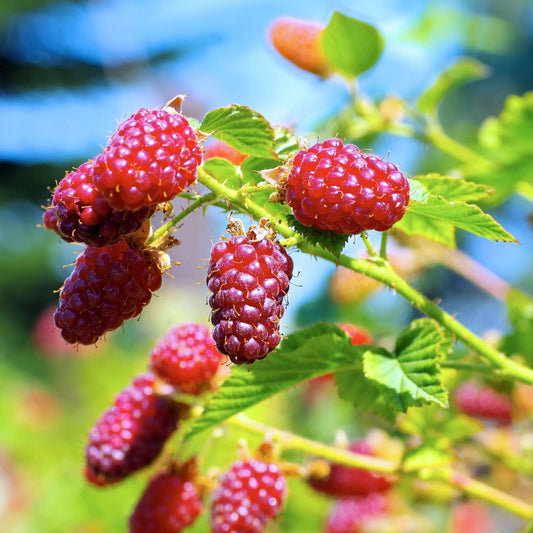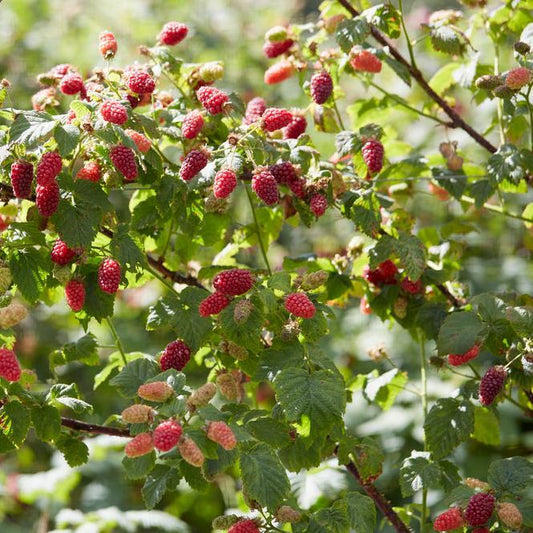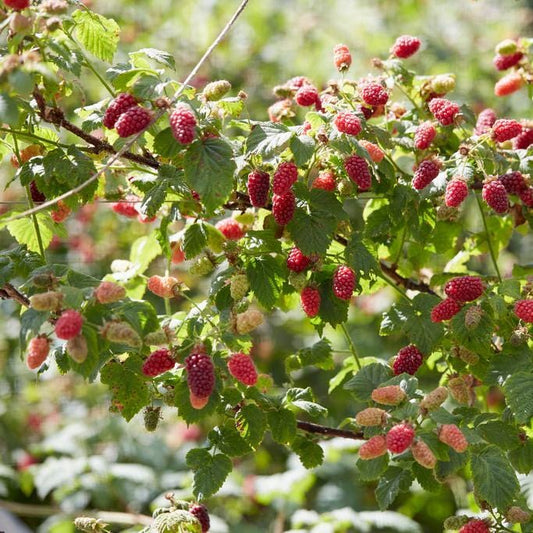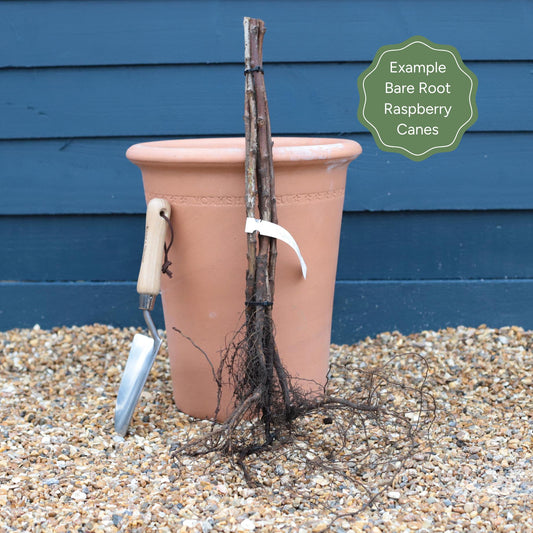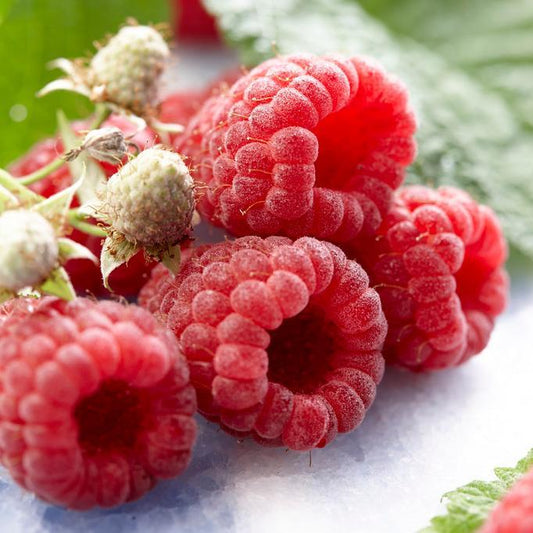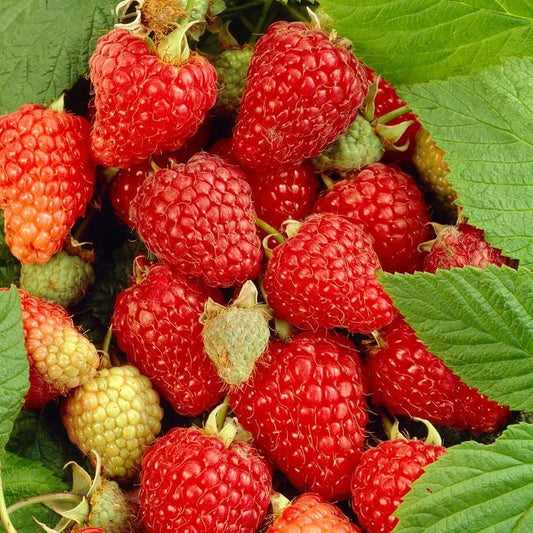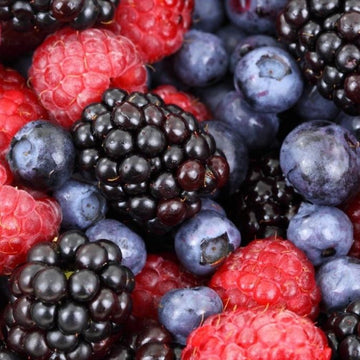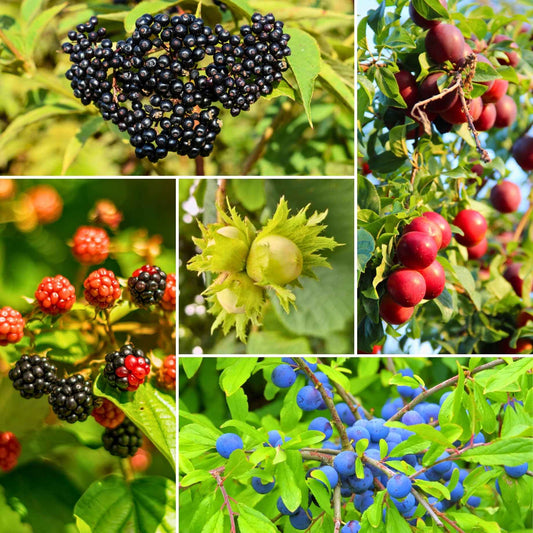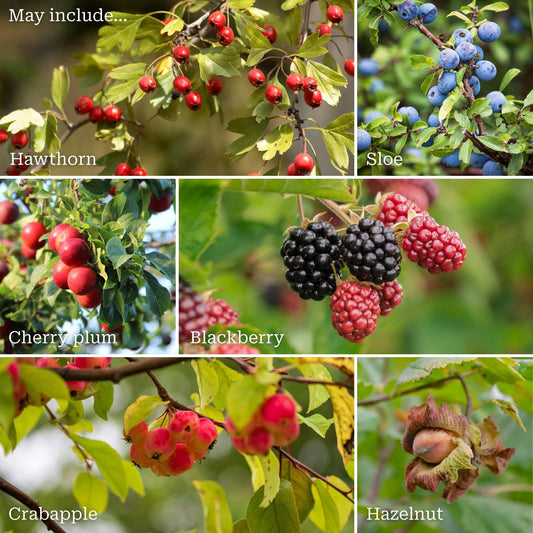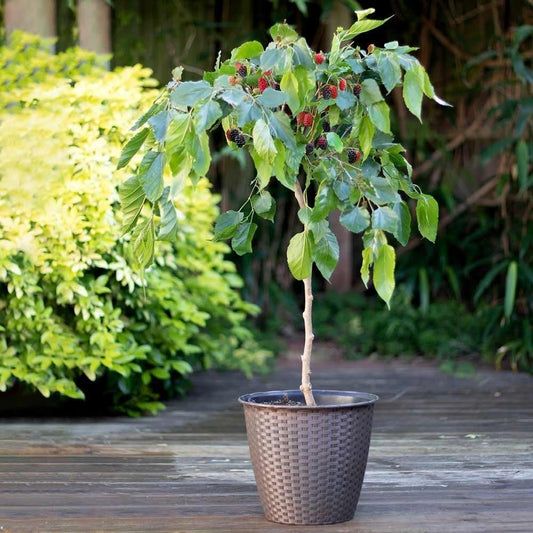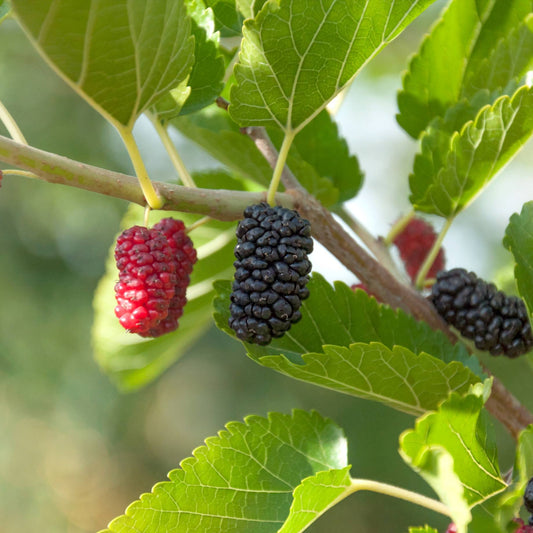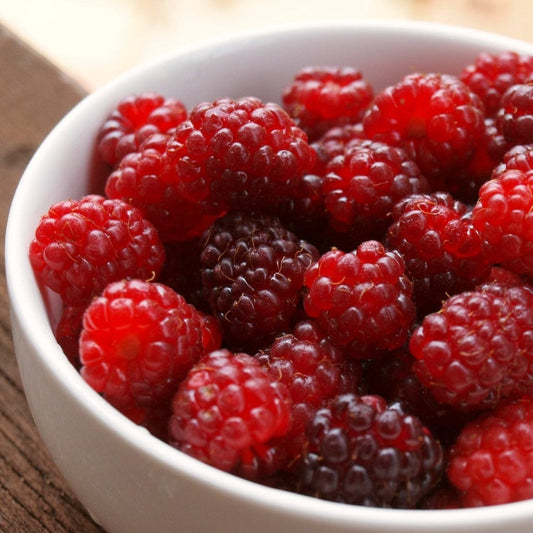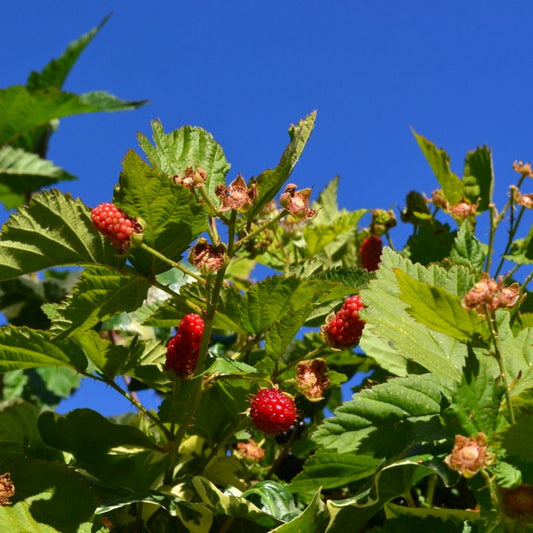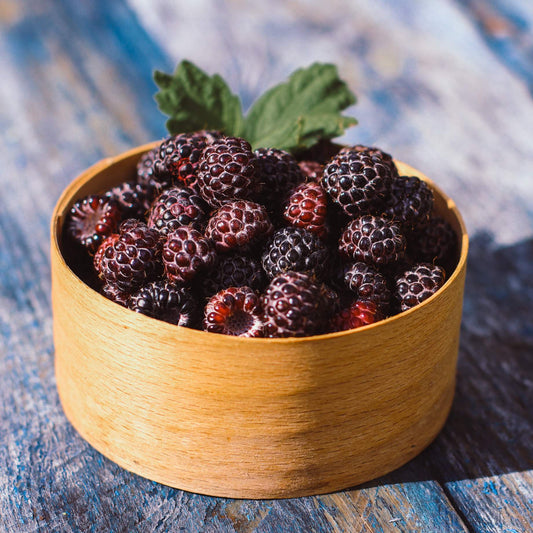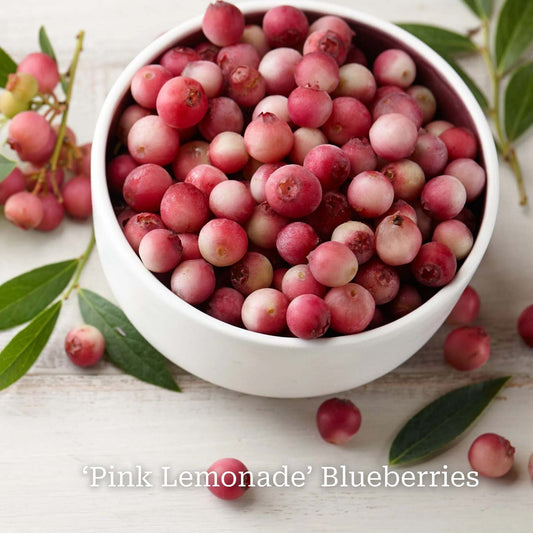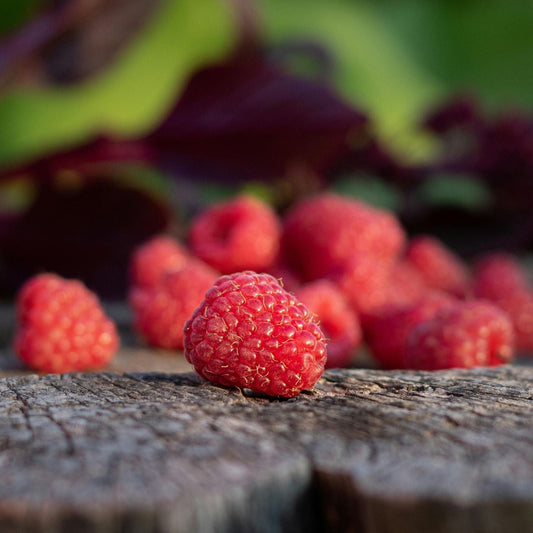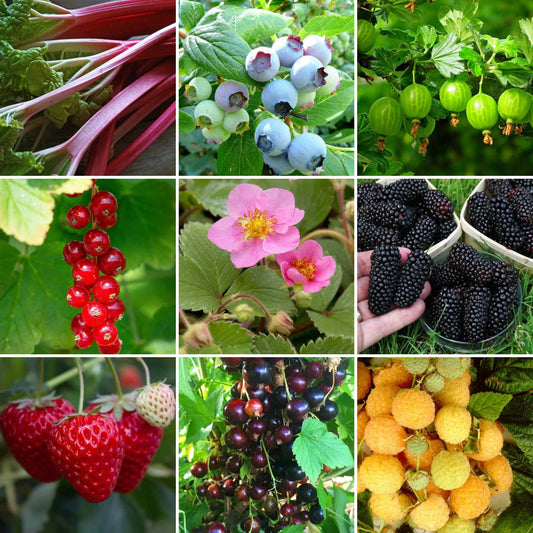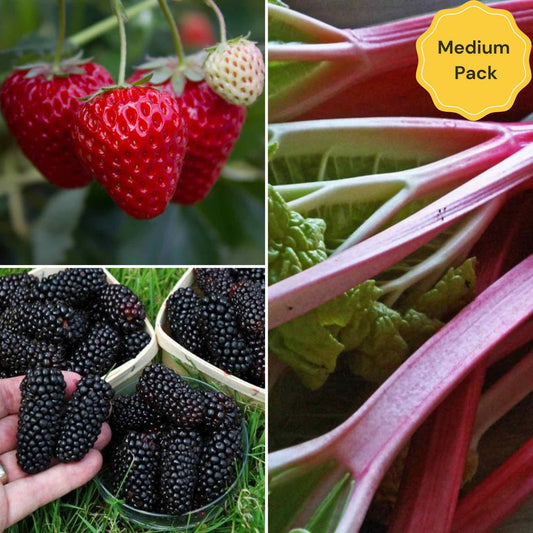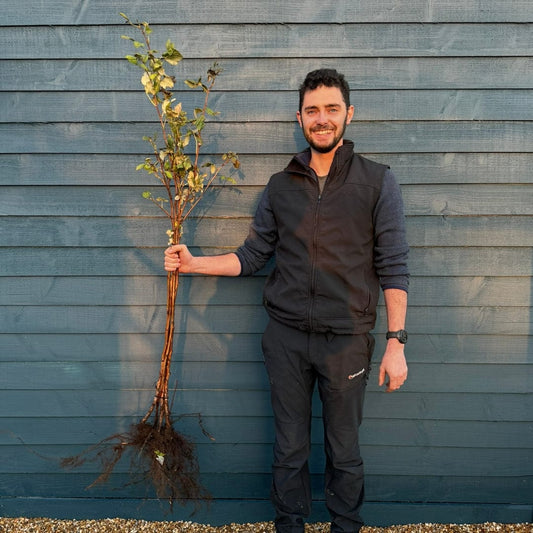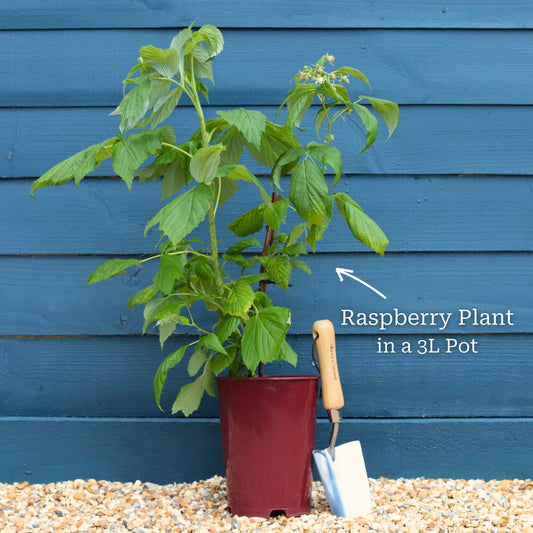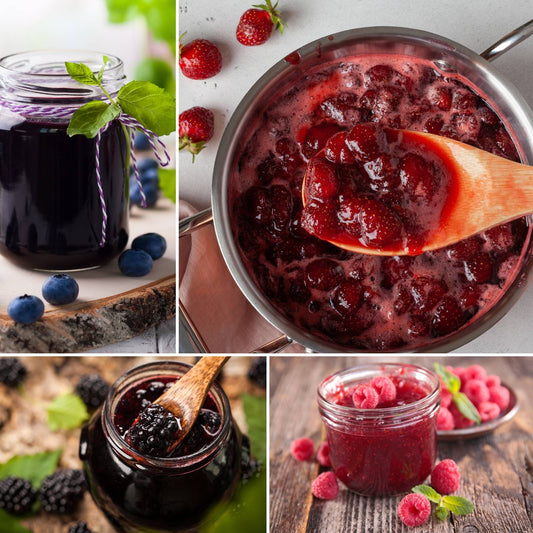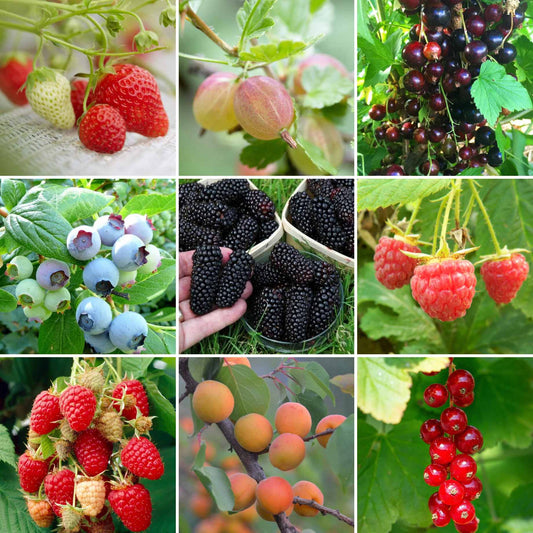Collection: Raspberry Canes and Plants
Growing your own raspberries is infinitely better than buying them. Raspberry canes give you a glut of sweet, fresh berries for minimal effort. Our growers raise only the hardiest, most reliable varieties, guaranteed to perform. With raspberry canes and plants often fruiting for ten years or more, it’s an easy win (and the bees will love you for it, too!)
Need help picking?-
Regular price From £30Regular price Sale price From £30
'Yummy' Patio Raspberry Plant
Small but bloomin' mighty
- Juicy and sweet with subtly tart undertones
- Compact, thornless variety ideal for pots
- Pick from the bush and eat straight away!
- Harvest from July
2 options available
-
Regular price From £25Regular price
£35Sale price From £25'Autumn Bliss' Raspberry Plants
Is this the taste of heaven?
- Excellent aromatic, extra-sweet flavour
- Very reliable, bumper harvests
- Why not give a raspberry swiss roll a go?
- Pick from August to October
2 options available
-
Regular price From £21Regular price
£25Sale price From £21'Glen Ample' Raspberry Plants
Produces more-than-ample crops
- Incredibly rich and complex flavour
- RHS Award of Garden Merit winner
- Try out some raspberry shortbread bars
- Fruits from June to September
3 options available
-
Regular price From £16Regular price
£25Sale price From £16'Polka' Raspberry Plants
We're dotty about these berries!
- A crisp sweetness that dances on the palate
- RHS Award of Garden Merit winner
- Prepare a batch of raspberry flapjacks
- Fruits through from August to October
1 option available
-
Regular price From £8Regular price Sale price From £8
Thornless Loganberry Plant
A wonderful Californian hybrid
- Packed full of intense, complex flavours
- The aromatic flavour lends itself to jams
- Eat with fresh cream and some sugar
- Harvest your loganberries from July to August
5 options available
-
Regular price From £36Regular price
£40Sale price From £36Award-Winning Raspberry Canes | Growers' Choice
Three varieties loved by the RHS
- Exquisitely sweet and tangy raspberries
- Grow in borders or patio pots
- Eat fresh, served with cream and sugar
- Harvest fresh berries from early July to October
1 option available
-
Regular price From £24Regular price
£26Sale price From £24'Wellington' Mulberry Tree
Old fruits, bold flavours
- Juicy, jammy and jolly nice!
- A highly-productive variety
- Makes a heavenly crumble
- Harvest from July to August
2 options available
-
Regular price From £19Regular price Sale price From £19
'All Gold' Raspberry Plants
Enchanting golden raspberries
- Moreishly sweet and juicy
- RHS Award of Garden Merit winner
- Make a traditional Scottish cranachan
- Pick from August to October
3 options available
-
Regular price From £16Regular price
£25Sale price From £16'Glen Prosen' Raspberry Plants
A Scottish sensation
- Firm berries with a sweet, aromatic flavour
- Robust and perfect for wet or dry areas
- Use to make a rich raspberry trifle
- Harvest from June right through to October
2 options available
-
Regular price From £9Regular price
£15Sale price From £9'Medana' Tayberry Plant
An unbeatable hybrid berry
- Every bite bursts with bold, juicy flavour
- Combines a raspberry with a blackberry
- Prepare a traditional British summer pudding
- Pick your tayberries from July to August
2 options available
-
Regular price From £20Regular price Sale price From £20
'Buckingham' Thornless Tayberry Plants
Berries worthy of a palace
- A lovely balance of sweet and tart
- Thornless and reliable, expect bumper crops
- Make a tray of tayberry and ginger brownies
- Ready to harvest in July and August
2 options available
-
Regular price From £22Regular price
£25Sale price From £22'Malling Admiral' Raspberry Plants
Navy-strength flavour assured
- Explosions of juicy sweetness
- RHS Award of Garden Merit winner
- Eat fresh, use in jams or add to trifles
- Expect fantastic yields from July to August
1 option available
-
Regular price From £36Regular price
£40Sale price From £36All Season Raspberry Plants Collection
Fresh raspberries in two seasons
- Sweet, juicy berries bursting with flavour
- Easy to grow in a sunny border
- Eat fresh or bake into pies and crumbles
- Harvest in both summer and autumn
2 options available
-
Regular price From £15Regular price
£25Sale price From £15'Tulameen' Raspberry Plants
A Canadian crowd-pleaser
- A lovely, traditional-tasting raspberry
- RHS Award of Garden Merit winner
- Bake a gorgeous lemon and raspberry cake
- Harvest from July to August
1 option available
-
Regular price From £15Regular price
£17Sale price From £15'Cascade Delight' Raspberry Plant
Overflowing with fab flavour
- Gloriously sweet and well-flavoured
- Loved by pollinators
- Try a raspberry ripple chia pudding
- Late summer-fruiting (pick July to October)
3 options available
-
Regular price From £65Regular price
£95Sale price From £65A Completely Edible Hedge
Turn borders into fruit gardens!
- Packed with fruit, nuts and berries
- Spring flowers loved by pollinators
- Tasty varieties handpicked by our grower
- Hardy, productive and easy to look after
Currently out of stock
-
Regular price £40Regular price Sale price £40
Patio Mulberry Tree | Morus rotundiloba 'Mojo Berry'
The juiciest, jammiest berries
- Sweet and succulent mulberries
- RHS Chelsea Plant of the Year 2017
- Serve with sugar and whipped cream!
- Pick from May to September
1 option available
-
Regular price From £18Regular price Sale price From £18
Boysenberry Bush | Rubus ursinus × idaeus
The best of three berries
- Punchy, bold and intensely juicy
- Thornless canes for easy picking
- Bake a boysenberry, lemon and almond loaf
- Summer fruiting - harvest from May to July
2 options available
-
Regular price From £9Regular price Sale price From £9
'Glencoe' Purple Raspberry Plants
Packs a purple punch
- Purple raspberries with a sweet, tangy taste
- Thornless stems guarantee easy picking
- Eat fresh with vanilla ice cream
- Harvest from June through to August
2 options available
-
Regular price £51Regular price Sale price £51
Unusual Berry Collection
Berries to get everyone talking
- Juicy berries with complex flavour profiles
- Fruits you won't find in the shops
- Eat fresh, bake in crumbles or use for jams
- Harvest fresh fruit from July to October
1 option available
-
Regular price From £16Regular price
£25Sale price From £16'Malling Jewel' Raspberry Plants
Raspberries worthy of any crown
- Deliciously sweet and juicy
- RHS Award of Garden Merit winner
- Rustle up a raspberry and thyme jam
- Harvest from early July
2 options available
-
Regular price From £39Regular price
£41Sale price From £39Fruit Plants for Beginners | Allotment in a Box
Pick your own soft fruit and grow it too
- Juicy berries, currants and more
- Top-performing, premium varieties
- Eat fresh or make unbeatable crumbles
- Harvest from summer onwards
3 options available
-
Regular price £30Regular price Sale price £30
'Octavia' Long Cane Raspberry Plant
Fruits in its first year!
- Sweet, fresh and very flavourful
- RHS Award of Garden Merit winner
- Eat straight from the plant or make jam
- Harvest in August
1 option available
-
Regular price From £18Regular price Sale price From £18
'Malling Leo' Raspberry Plants
Loved for over half a century
- Fabulously aromatic with lovely sweetness
- Hardy, reliable and well-timed yields
- Pop your raspberries into a fresh fruit salad
- Harvest from August into September
2 options available
-
Regular price From £25Regular price Sale price From £25
'Glen Mor' Raspberry Plants
Incredibly tough and resilient
- The perfect level of sweetness
- Exceptional disease resistance
- Make an incredible raspberry clafoutis
- Harvest in July
1 option available
-
Regular price From £39Regular price
£41Sale price From £39Jam Maker's Fruit Plants Collection | Allotment in a Box
If fruit is your jam, grow your own!
- Rich and flavourful varieties
- Includes premium berries, currants & apricots
- Best fruits for jams, jellies and desserts
- Harvest from summer onwards
3 options available
-
Regular price £45Regular price Sale price £45
Patio Raspberry Plant Gift
A gift of abundance & kindness
- One of the most compact raspberry varieties
- Thornless for easy picking
- A great pick for patio and balcony gardeners
- First ever garden? Get one of these!
1 option available
Roots' Cotswolds Valley Nursery
Meet Mike
Fruit plants grown with love (and serious knowhow!)
Mike’s our guy when it comes to growing soft fruits. He’s our grape guru. Our gooseberry genius. Our blueberry boffin. What Mike doesn’t know about soft fruits? Well, it simply isn’t worth knowing. Having traversed the world from Australia to Northern Ireland – and even undertaking a horticultural stint in Sweden – Mike combines his enthusiasm, technical expertise, state-of-the-art facilities and favourable climatic conditions of the Cotswolds to grow only the very juiciest, sweetest soft fruits.
Need help picking?

Which raspberry plant is best for you?
If you really love raspberries, plant both summer-fruiting ('Glen Ample', 'Malling Leo', 'Glen Prosen') and autumn-fruiting ('Joan J', 'Polka', 'Autumn Bliss') varieties of raspberry for picking right from June to October. 'Ruby Beauty' and 'Yummy' can even be grown in pots. For something different, try sweet, yellow-coloured 'All Gold' or even blackberry hybrids tayberry and loganberry.

Growers' tips for raspberry plants
Like all berries, raspberry plants do best in full sun, but will also grow in partial shade. Plant them in free-draining soil and leave 45cm between plants. Avoid a very windy site, as raspberries are self-fertile and pollinated by flying insects. Feed your raspberry plants in spring with a general fertiliser and apply a mulch around the plants to deter weeds. Keep them well-watered in dry weather and net them if they prove irresistible to the birds! For more raspberry plant care tips, read our full guide.
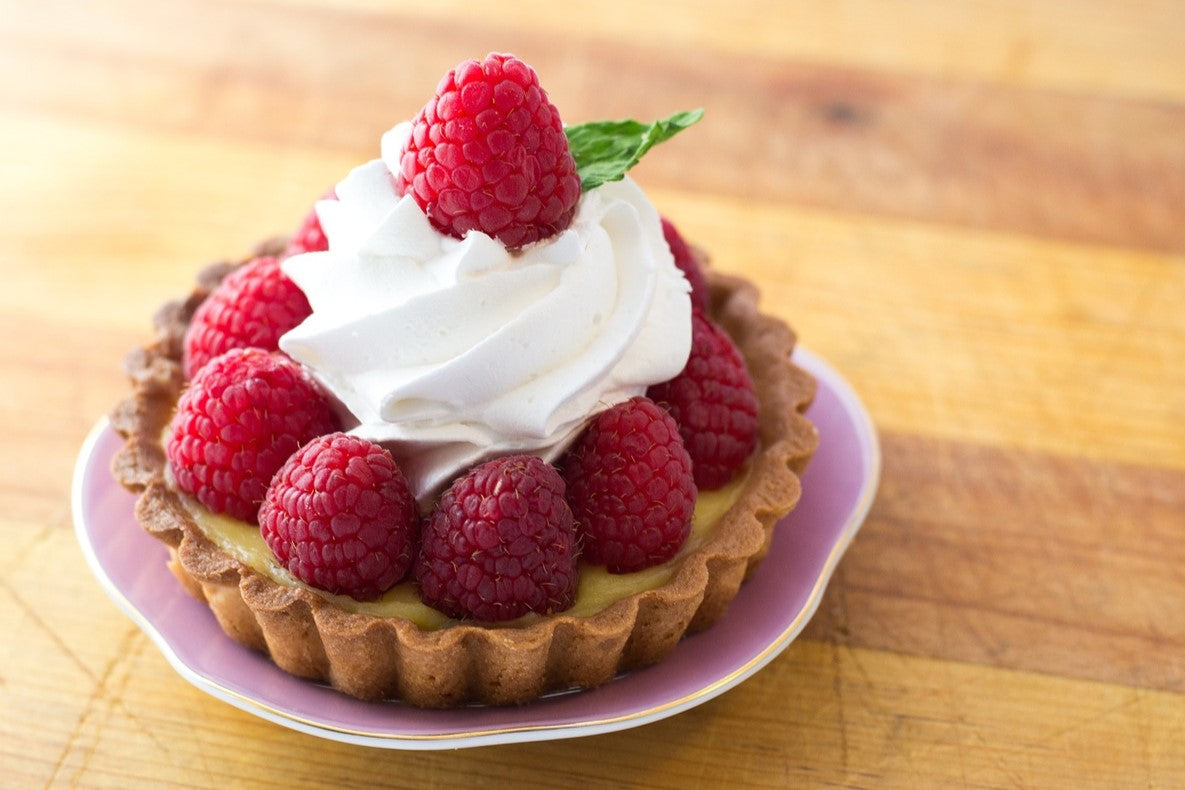
Using your raspberries
Eat your raspberries by the handful, picked warm from the garden or make sundaes, smoothies and jams. Raspberries can be found in so many classic desserts - with peaches in a peach melba, with fresh cream and meringue in a pavlova or in a good old sherry trifle. You can also mix your raspberries with some thyme in a scrummy jam.
Raspberry Plants FAQs
What is the best time to plant raspberry canes?
Raspberries can be planted at any time during the dormant season, between November and March, providing the soil is not frozen or waterlogged. However, early spring is the best time to plant raspberries.
How do you take care of a raspberry bush?
Water and feed your raspberry plants throughout the growing season, being careful not to over water them. Keep the soil moist, consider digging in some compost when planting and feed with a liquid fertiliser on a monthly basis.
Where is the best place to plant raspberry bushes?
Finding that ‘sweet spot’ in the garden for your raspberry plant is extremely important as they grow best in at least six to eight hours of warm sun. I think I’d be happy soaking up that much sunshine too!
Do I need to prune my raspberry bush?
It’s important to prune raspberries in order to produce higher yields, control diseases, facilitate harvesting and so you can become the raspberry-obsessed fiend you’ve always wanted to be.
How long does it take for a raspberry plant to bear fruit?
The stems of autumn varieties bear fruit and flowers in their first year of growth, whereas the stems of summer varieties do not bear fruit until their second year of growth.
What do you do with raspberry plants in the winter?
Simply cut all the fruited canes to the ground in winter, to allow new canes to grow in spring. It’s for the best, we promise!
Can raspberries grow in pots?
If your garden soil isn’t great, you don’t get a lot of sun or you have quite limited garden space, then you may want to consider growing raspberries in containers. We would suggest choosing a compact variety such as 'Yummy' or 'Ruby Beauty'.
Are raspberries good for you?
Due to their high vitamin C content, raspberries are considered superfoods. They are also loaded with antioxidants and flavonoids, which have many health benefits - and yes, you can eat raspberries everyday!
How tall do raspberries grow?
It’s normal for raspberries to reach heights between 90cm to 150cm tall with a spread between 60cm and 90cm and you can support their growth with a trellis, fence, or stake. Prefer them to be short but sweet? You can also prune raspberry bushes in order to keep them shorter.
How many raspberry canes do I need?
Raspberry canes grow and multiply quite quickly so planting one means you'll have a dozen more next year. Therefore, depending on how much space you have, we recommend planting one to ten canes.
Happy plants make happy customers
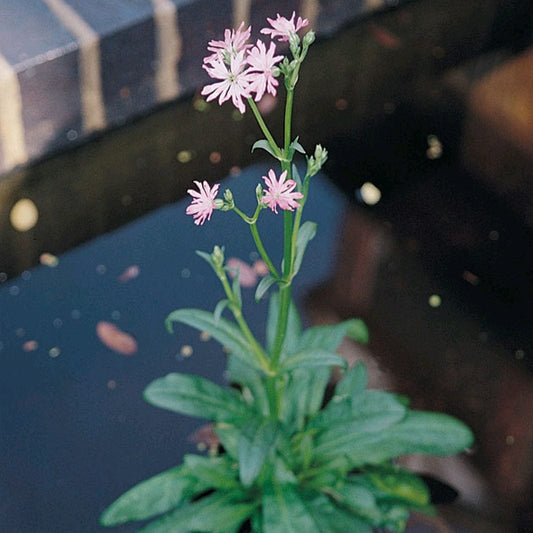
Plants arrived in great condition and very promptly. Well established - much better than the ones I got at my local garden centre.
Monica Spence
| 24 May
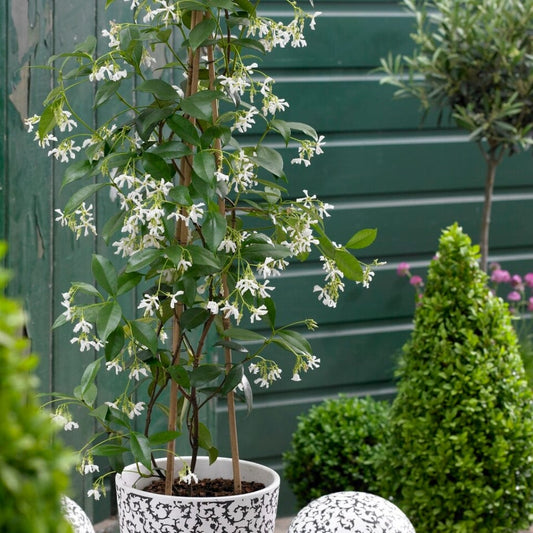
Yet again this company delivered good healthy plants, exactly as shown in photos, well packaged and within delivery time quoted. Recommend!
Jacqueline Burgess
| 2 Jun
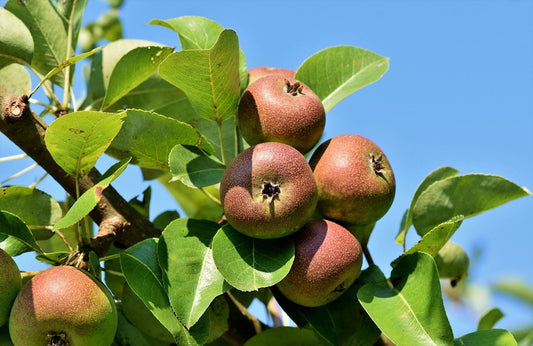
I continue to be so impressed with Roots. Their customer care, knowledge of their subject: from planting hedges to pruning roses and more, has been a great support.
Judy Lane
| 23 Oct
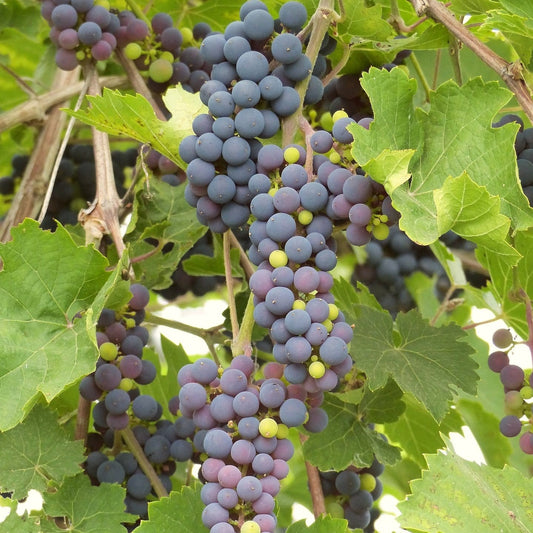
The plant arrived looking vigorously healthy, which brings a smile to your face, extremely well protected in its packaging.
Martyn Hill
| 5 Jul
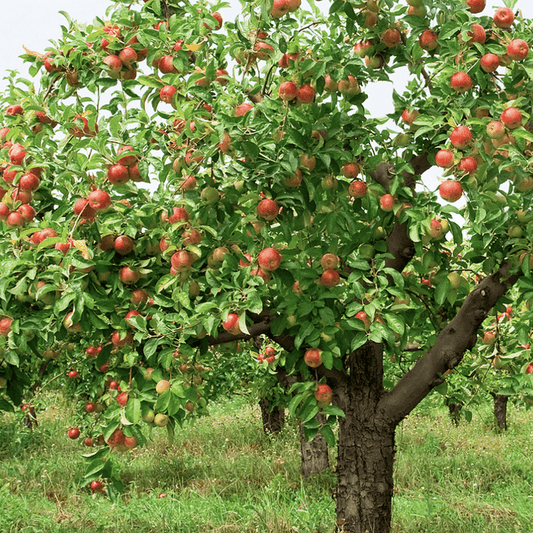
As a non-gardener, I found my whole experience brilliant. Great information & advice available on the website, great range of products & prices are brilliant.
John-Paul
| 22 May

Wonderful plants and great customer service... really surprised to find that the plants are better than those you would get at your local garden centre.
Gavin Wilcock
| 8 Nov
Fighting plastic waste
Delivering fresh from the nursery
Supporting UK growers
